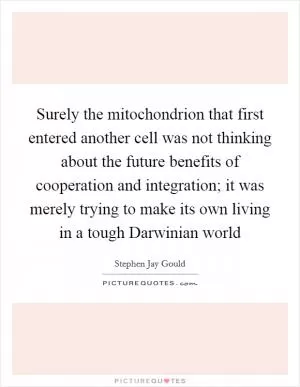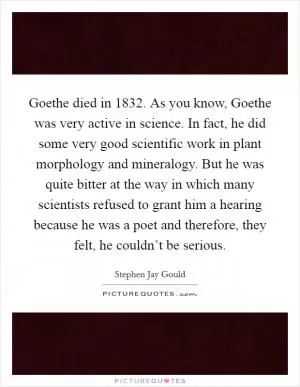Homo sapiens [are] a tiny twig on an improbable branch of a contingent limb on a fortunate tree
![Homo sapiens [are] a tiny twig on an improbable branch of a contingent limb on a fortunate tree Picture Quote #1 Homo sapiens [are] a tiny twig on an improbable branch of a contingent limb on a fortunate tree Picture Quote #1](https://img.picturequotes.com/2/76/75489/homo-sapiens-are-a-tiny-twig-on-an-improbable-branch-of-a-contingent-limb-on-a-fortunate-tree-quote-1.jpg)
Homo sapiens [are] a tiny twig on an improbable branch of a contingent limb on a fortunate tree
Stephen Jay Gould, a renowned paleontologist and evolutionary biologist, once famously described Homo sapiens as "a tiny twig on an improbable branch of a contingent limb on a fortunate tree." This statement encapsulates Gould's perspective on the evolution of human beings and their place in the grand scheme of life on Earth.Gould believed that the evolution of Homo sapiens was not a predetermined outcome, but rather the result of a series of contingent events that could have unfolded in countless different ways. He argued that the emergence of human beings was not inevitable, but rather a fortunate accident in the history of life on Earth.
Gould's concept of contingency in evolution challenges the traditional view of evolution as a linear progression towards more complex and advanced forms of life. Instead, he saw evolution as a complex and unpredictable process, shaped by random events and environmental factors.












 Friendship Quotes
Friendship Quotes Love Quotes
Love Quotes Life Quotes
Life Quotes Funny Quotes
Funny Quotes Motivational Quotes
Motivational Quotes Inspirational Quotes
Inspirational Quotes